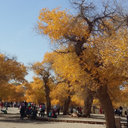Curcumin prevents strokes in stroke-prone spontaneously hypertensive rats by improving vascular endothelial function.
Keywords
Abstract
Antioxidants have shown great promise in stroke prevention. Diarylheptanoids (also known as diphenylheptanoids) are a small class of plant secondary metabolites that possess antioxidant activity greater than that of α-tocopherol. Curcumin is the best known member and is mainly extracted from turmeric. This study aimed to explore whether curcumin has a preventive effect on stroke.
Stroke-prone spontaneously hypertensive rats (SHRsp) were randomly divided into control group (n = 10) and curcumin group (n = 10), and saline or curcumin (100 mg/kg/day) was administrated daily. Vascular endothelial function was examined by the relaxation of the artery in response to acetylcholine (ACH). The levels of reactive oxygen species (ROS) and nitric oxide (NO) were measured by using dihydroethidium (DHE) and 4, 5-diaminofluorescein (DAF-2 DA), respectively. The expression of uncoupling protein 2 (UCP2) was examined by RT-PCR and immunoblotting.
Administration of curcumin significantly delayed the onset of stroke and increased the survival of SHRsp, which was ascribed to decreased ROS and improved endothelial dependent relaxation of carotid arteries. In the presence of UCP2 inhibitor genipin, both curcumin-mediated decrease of ROS and increase of NO production were blocked.
Our study suggests that curcumin exerts a stroke preventive effect by attenuating oxidative stress to improve vascular endothelial function, which might be associated with UCP2 signaling.




